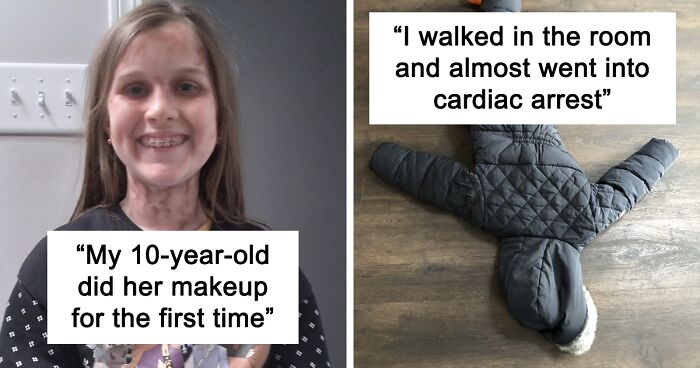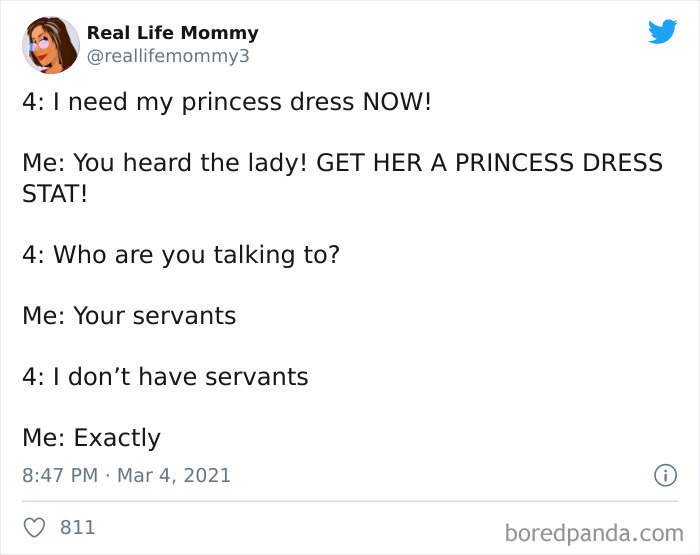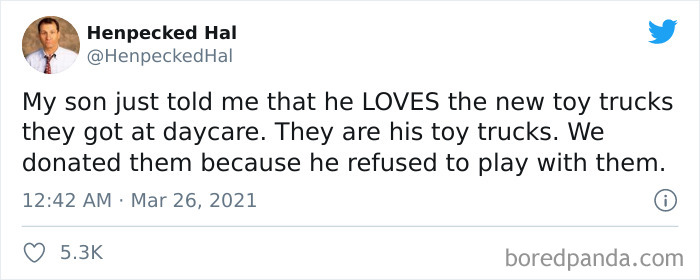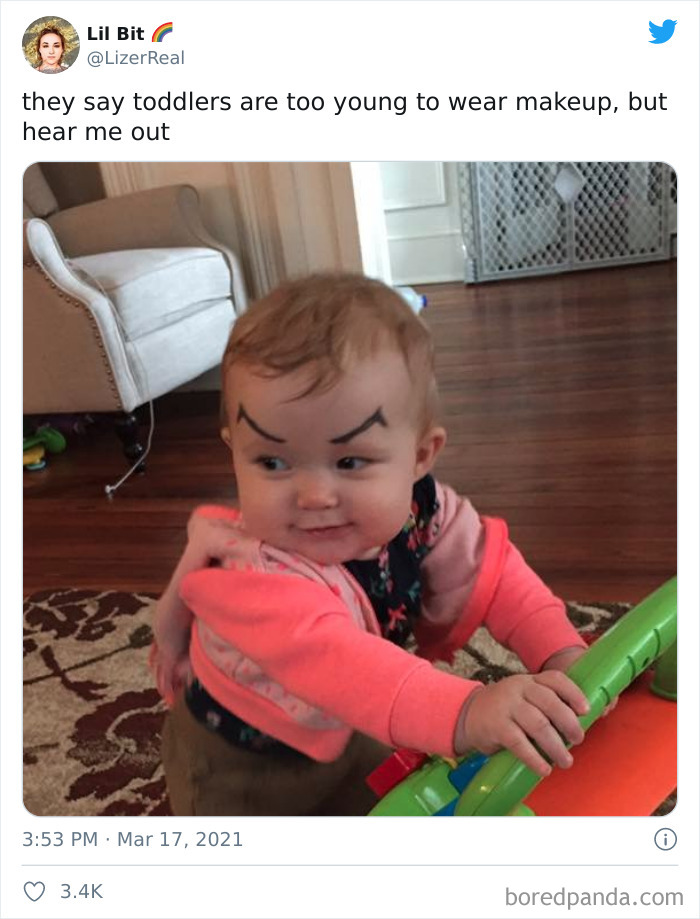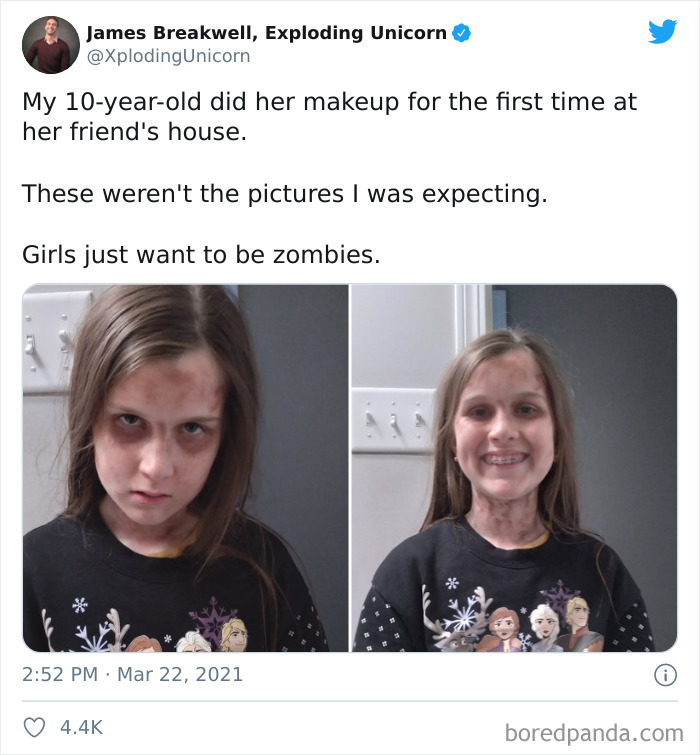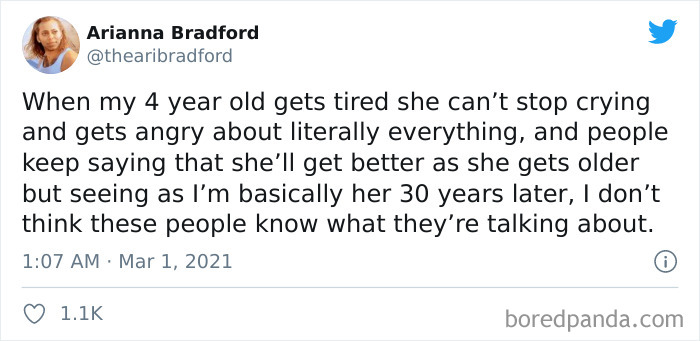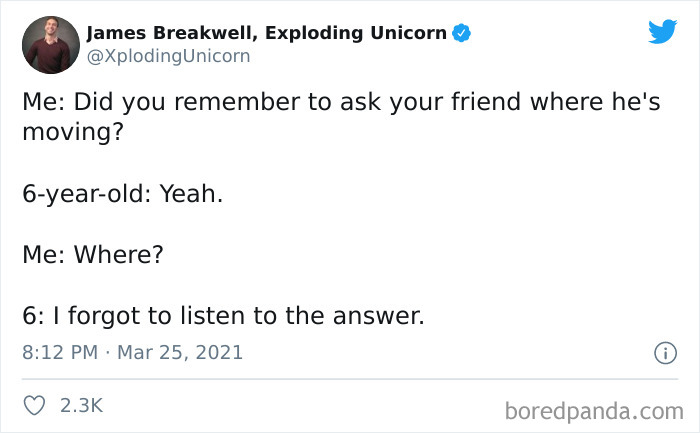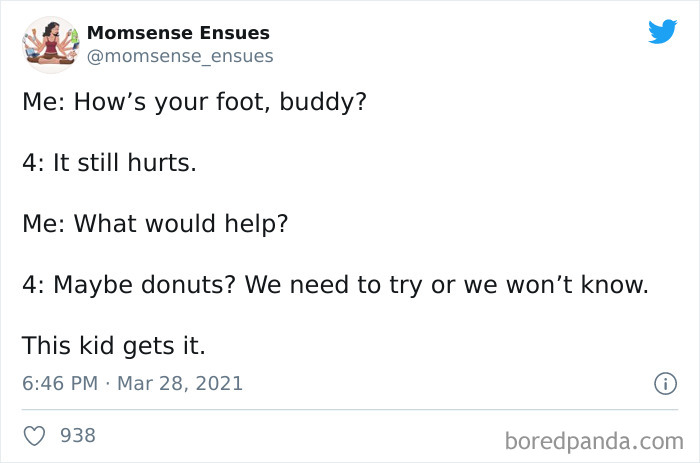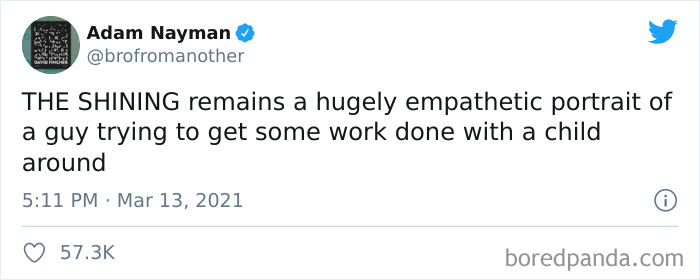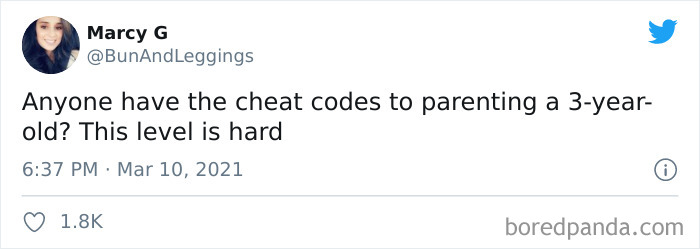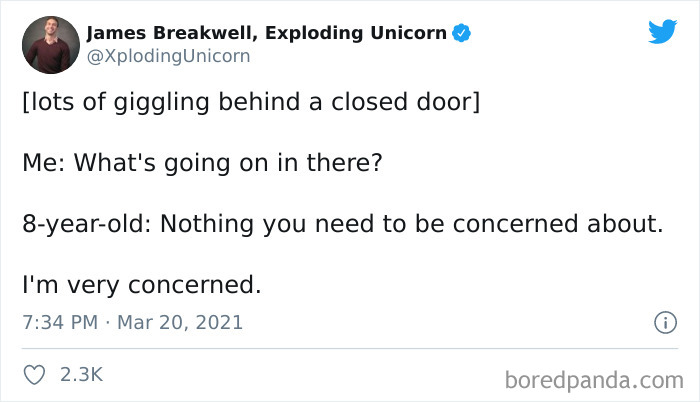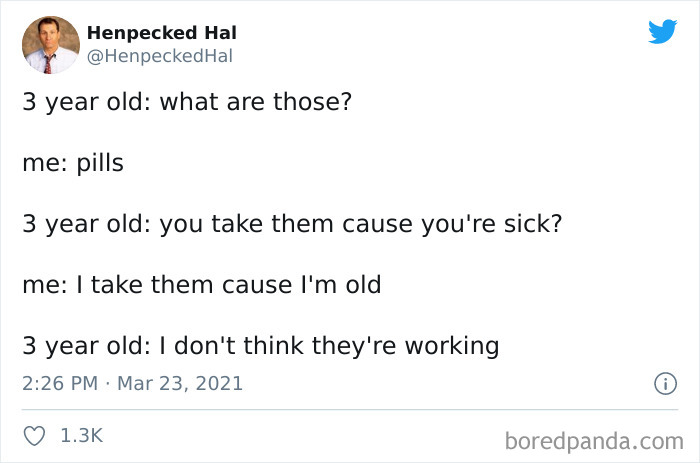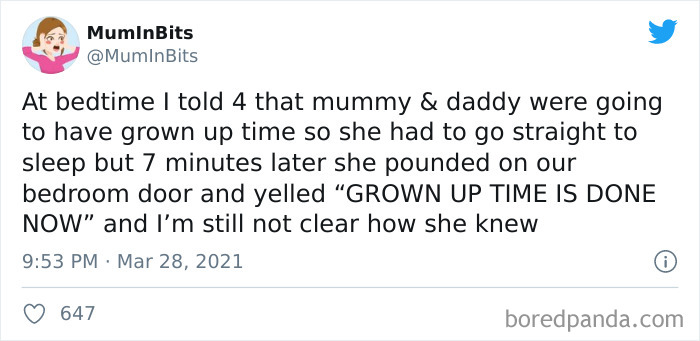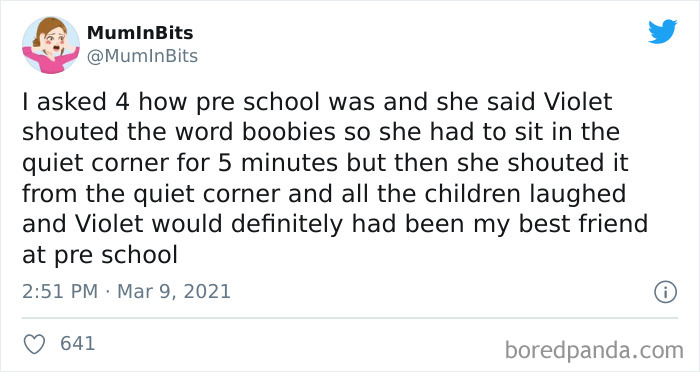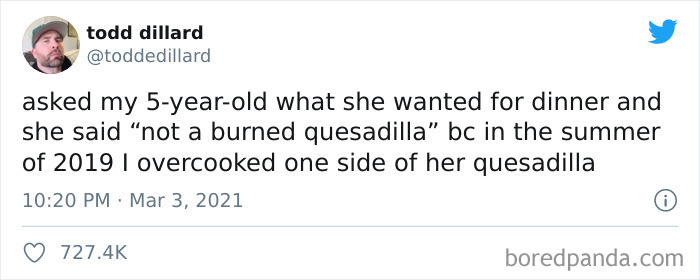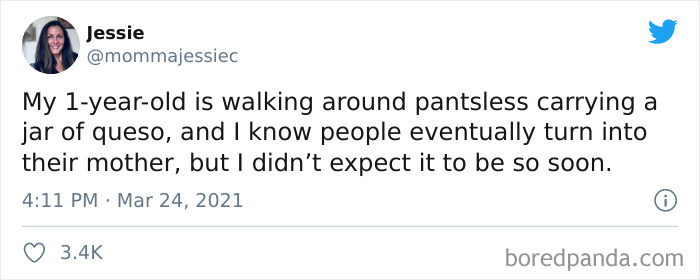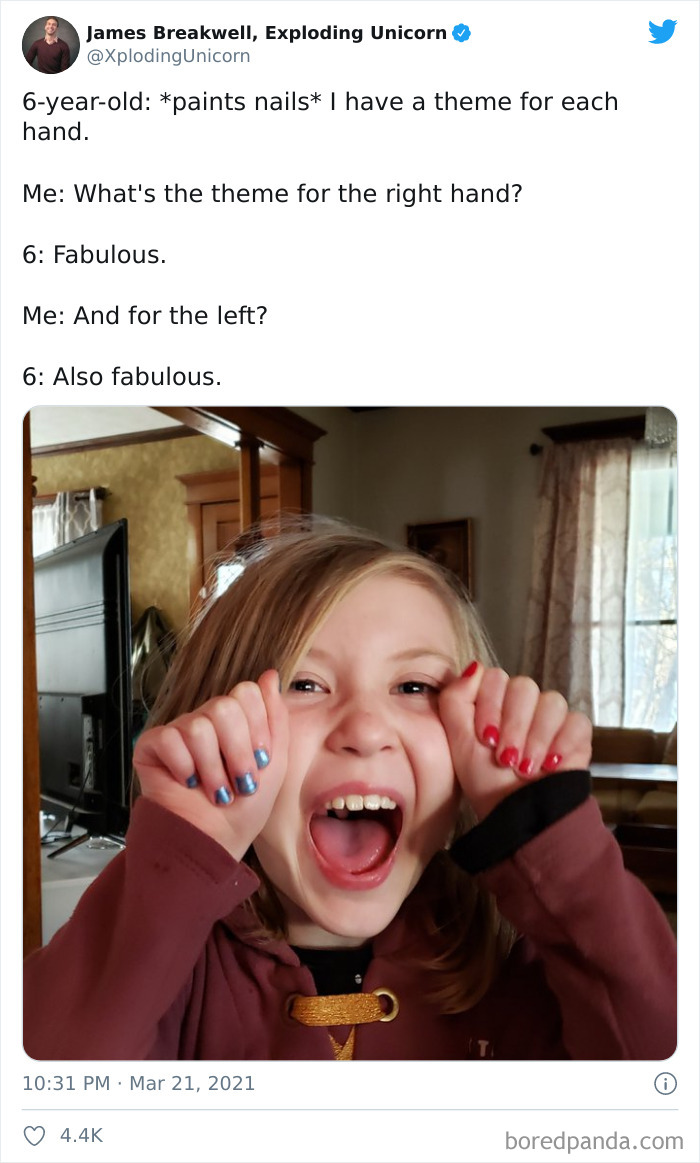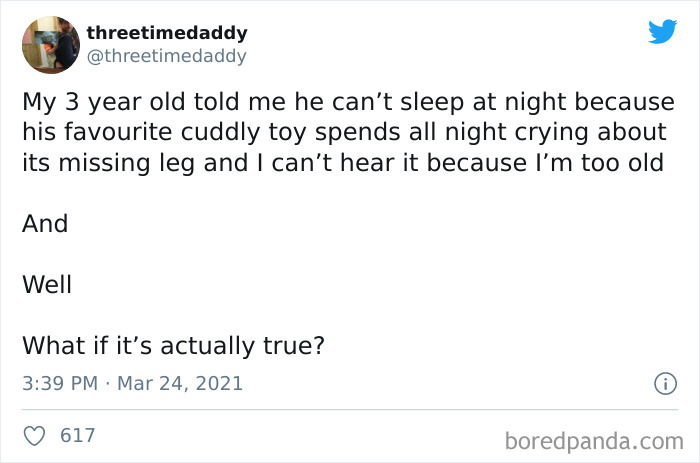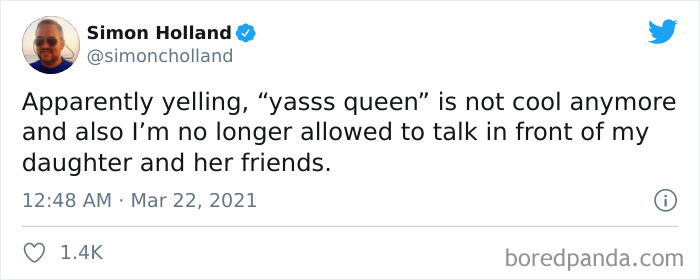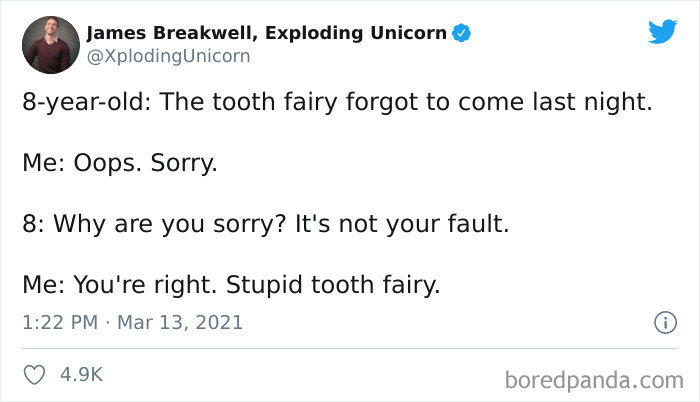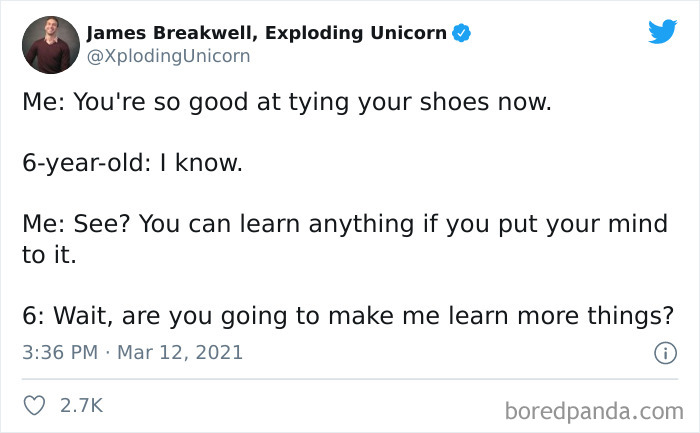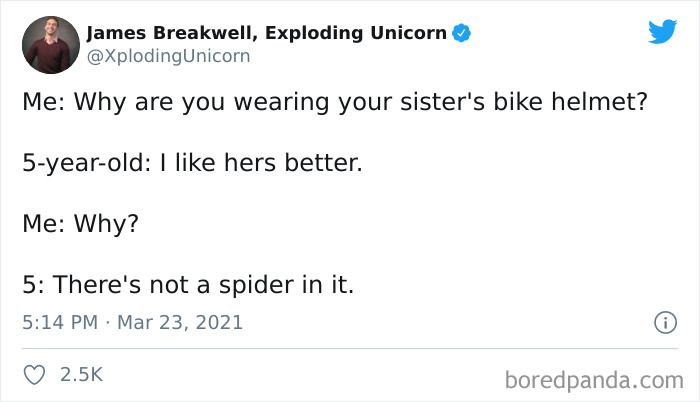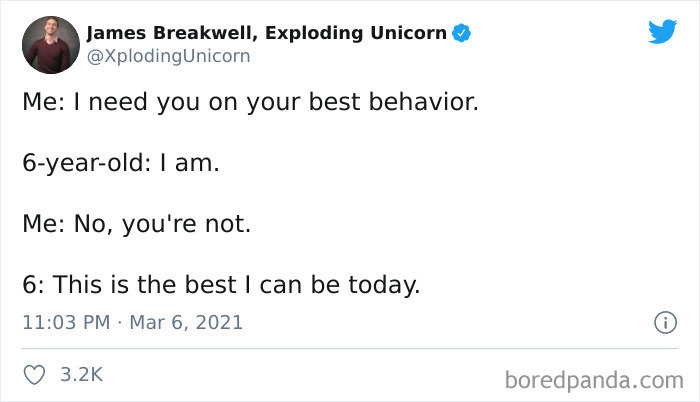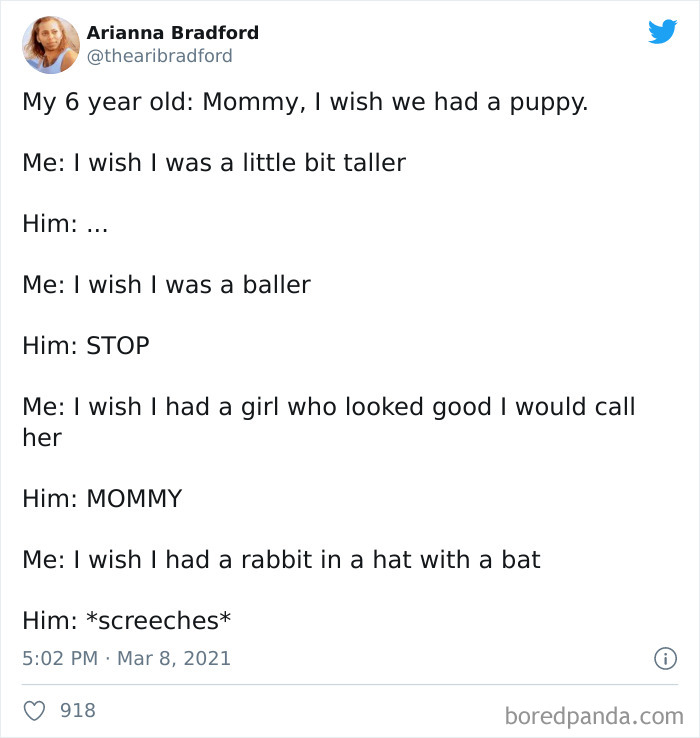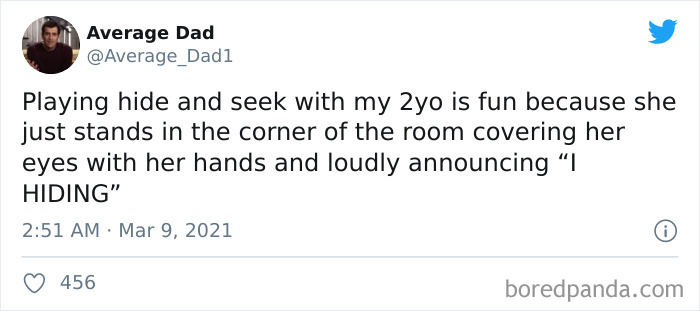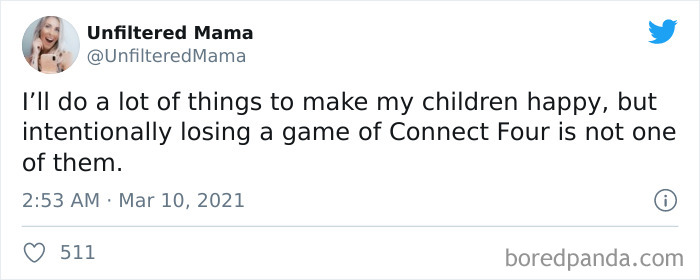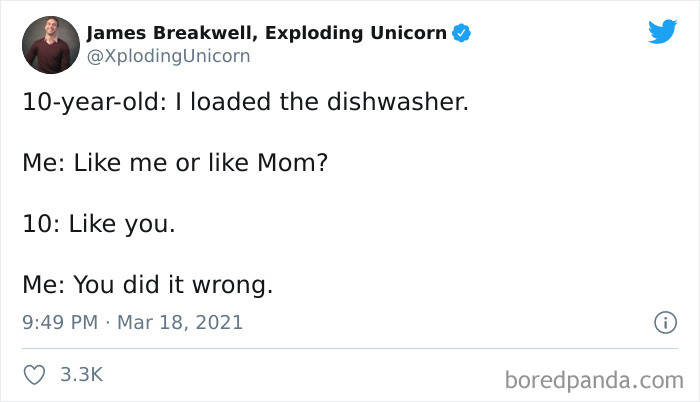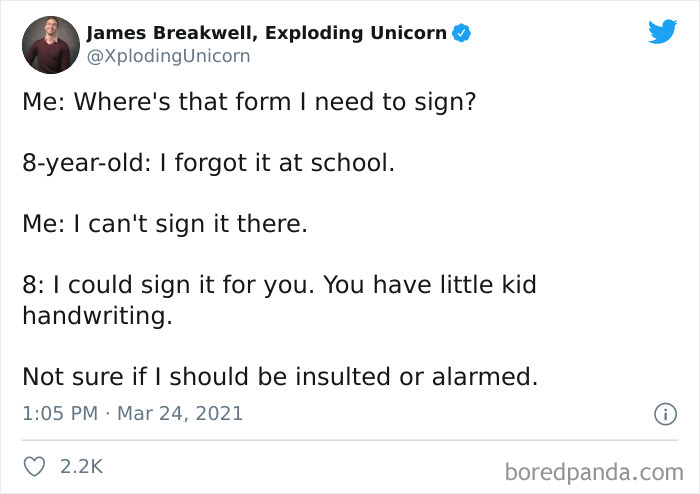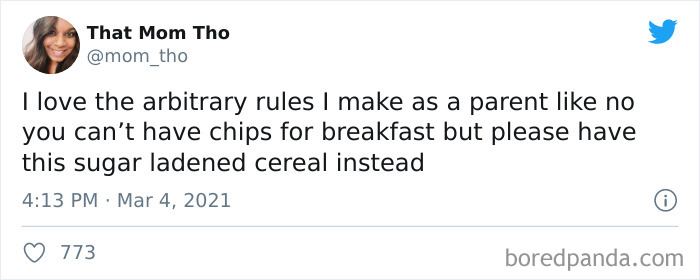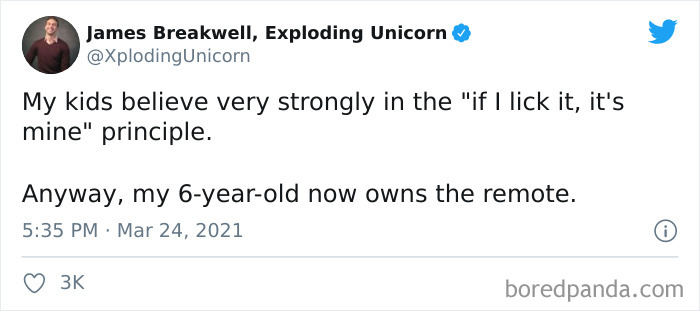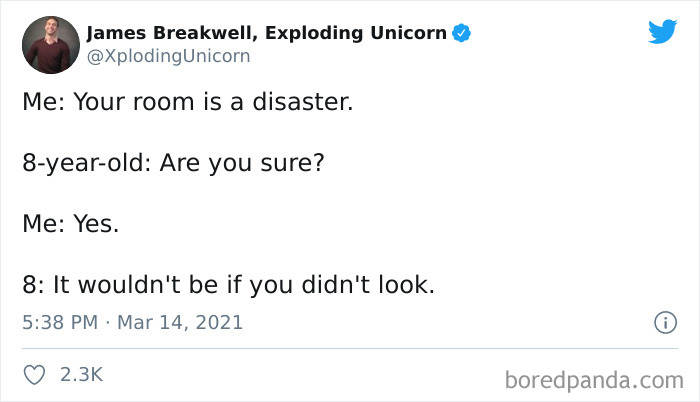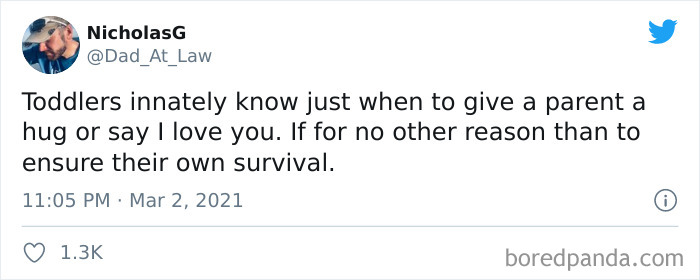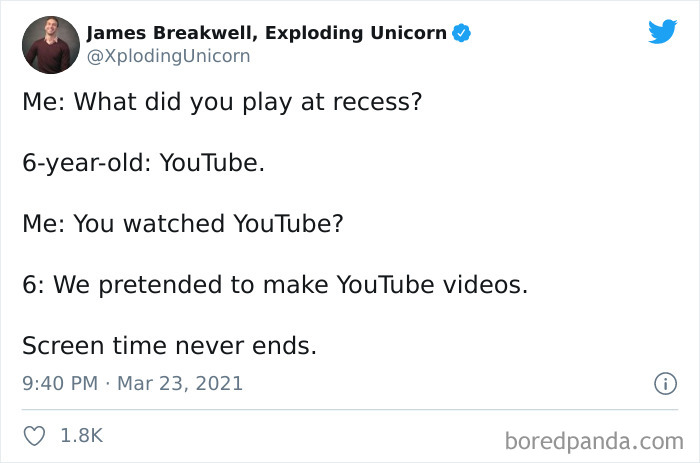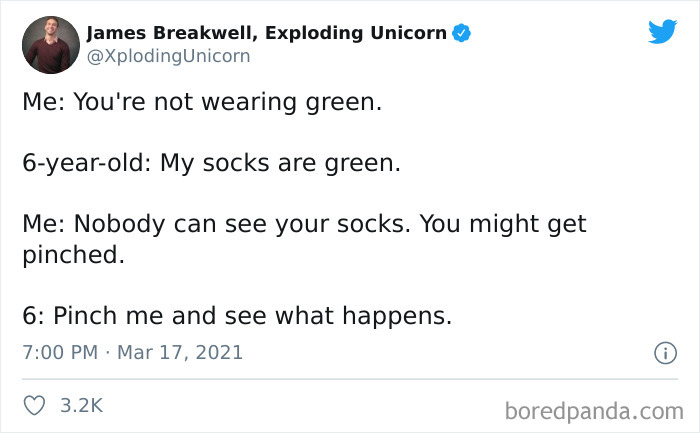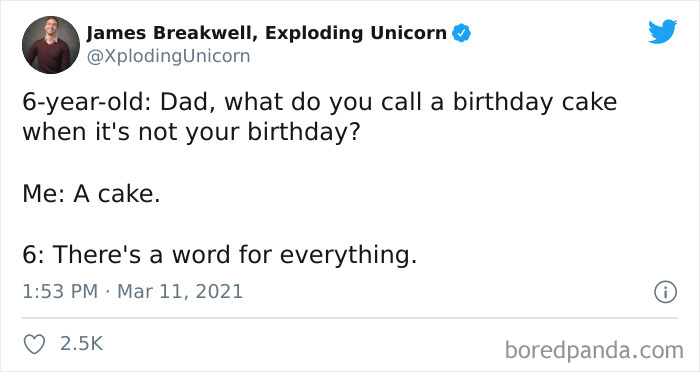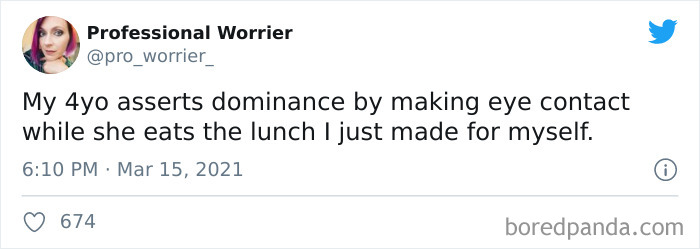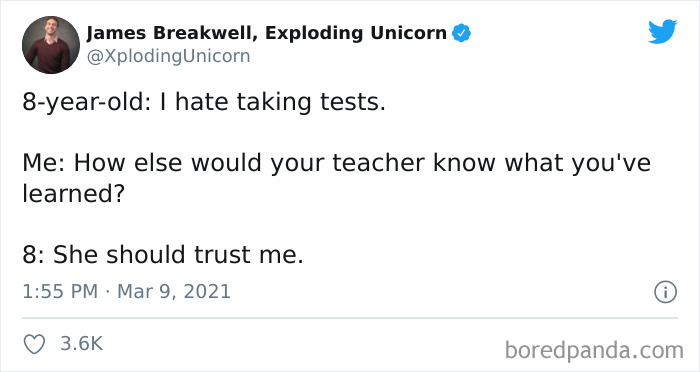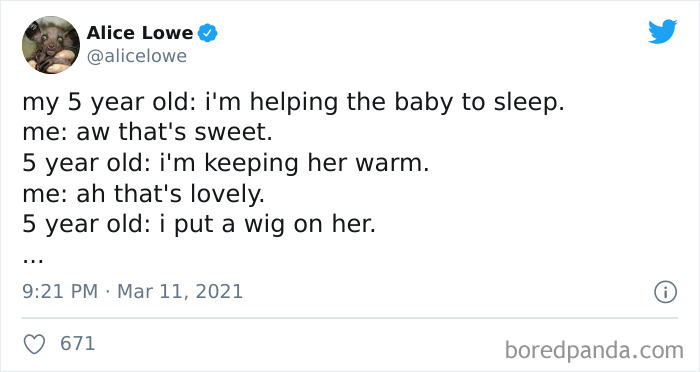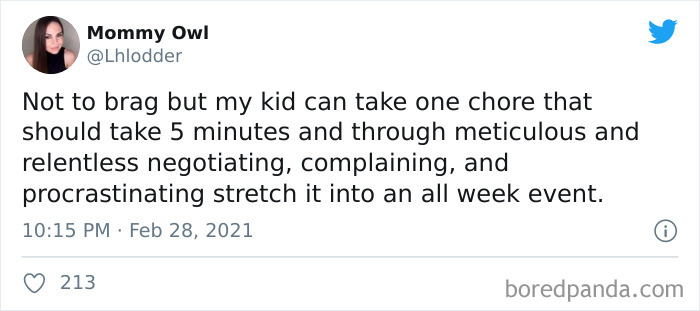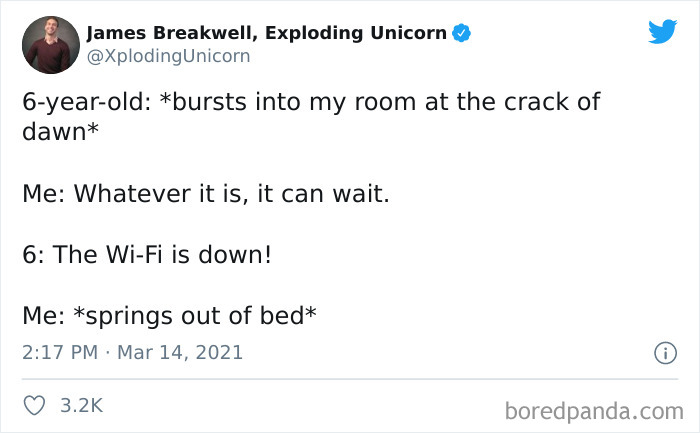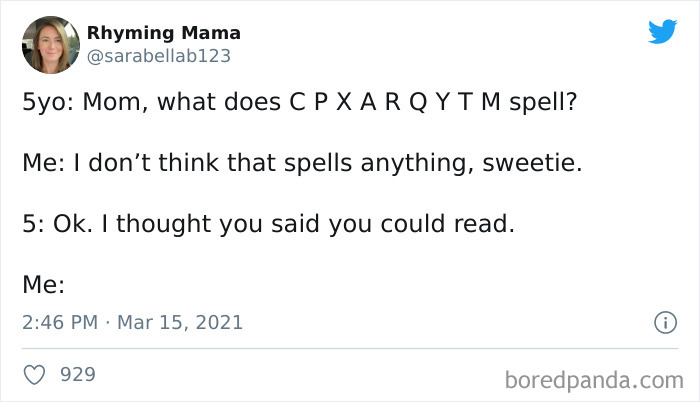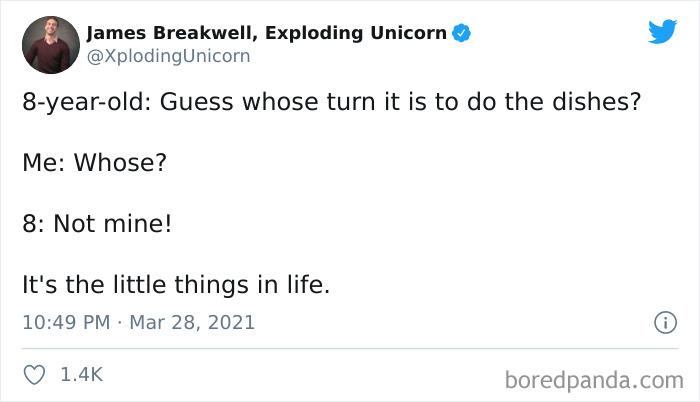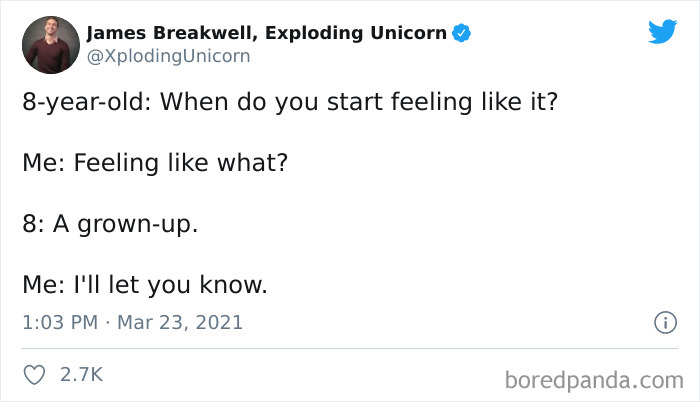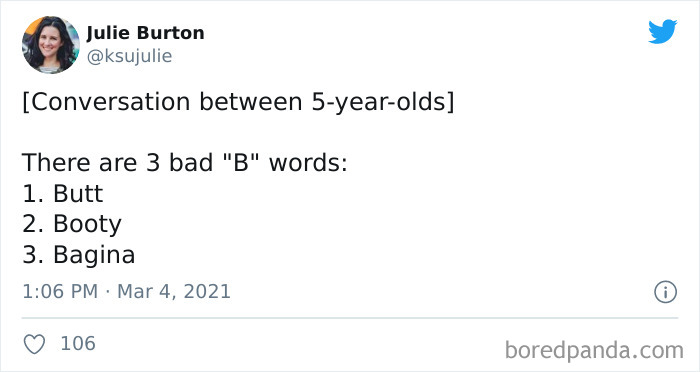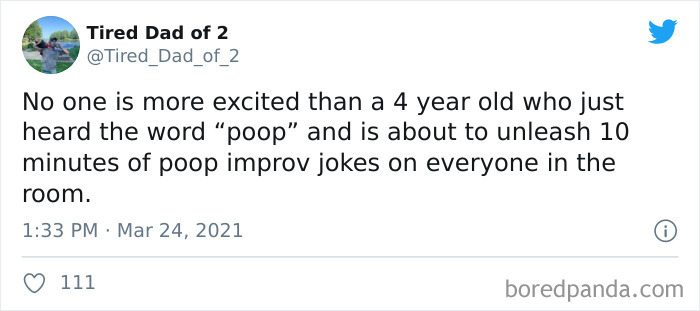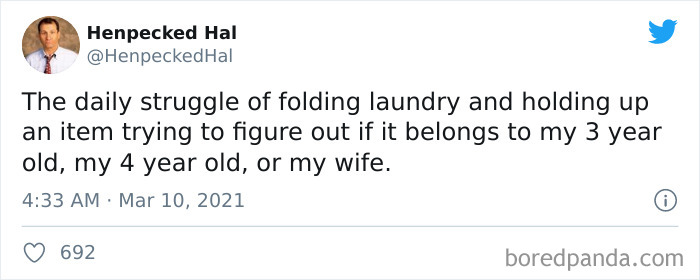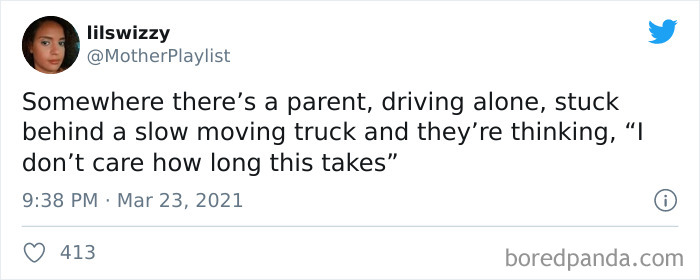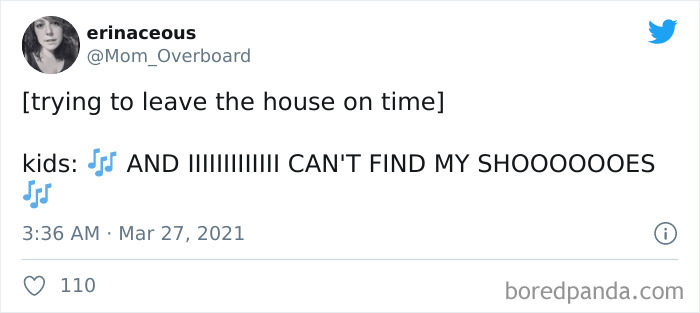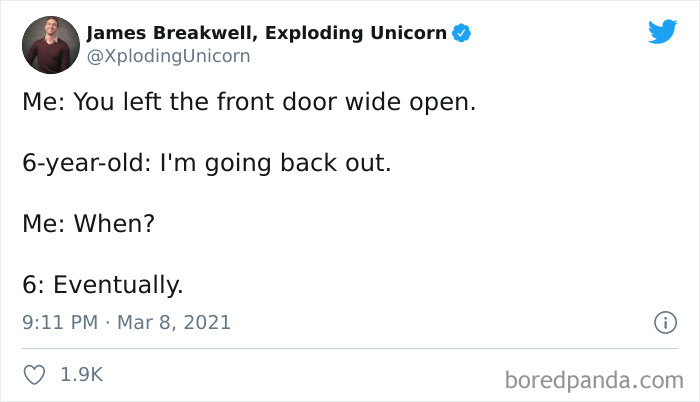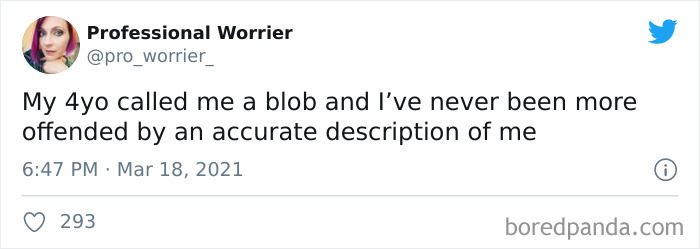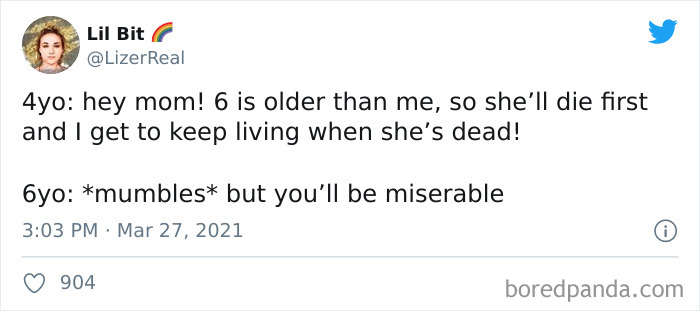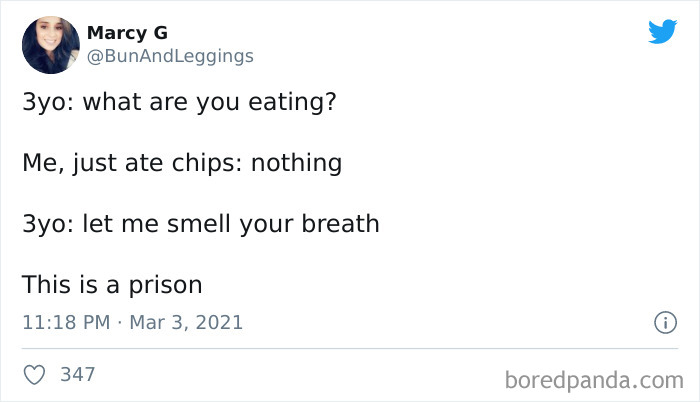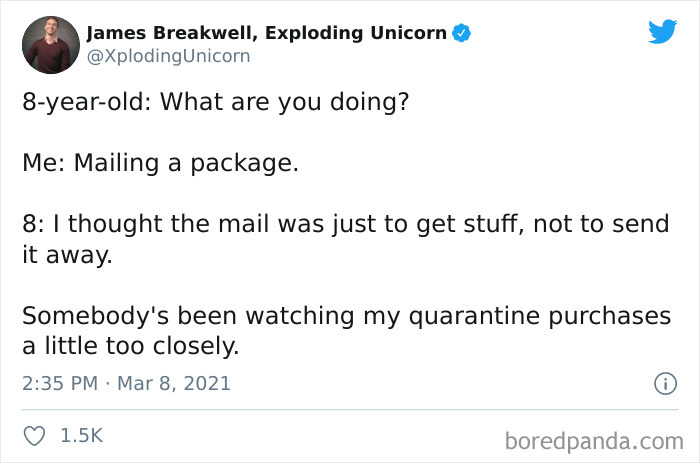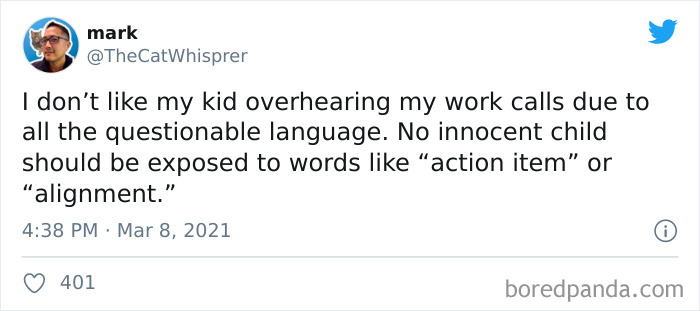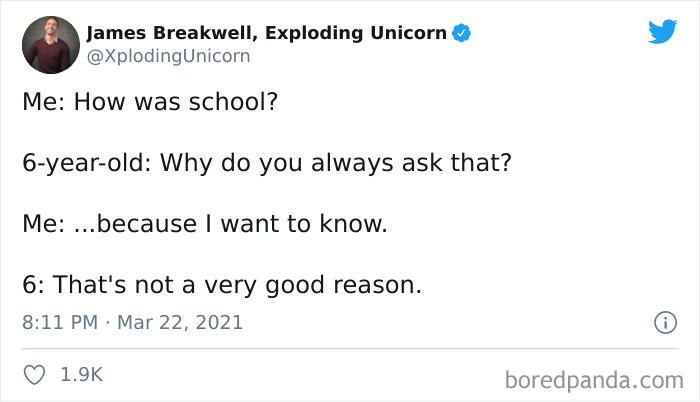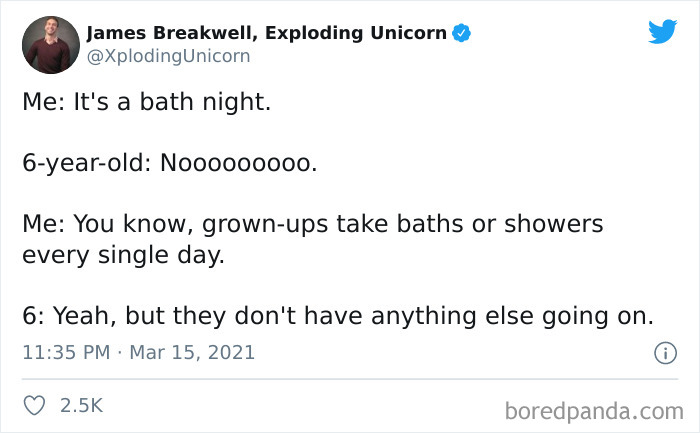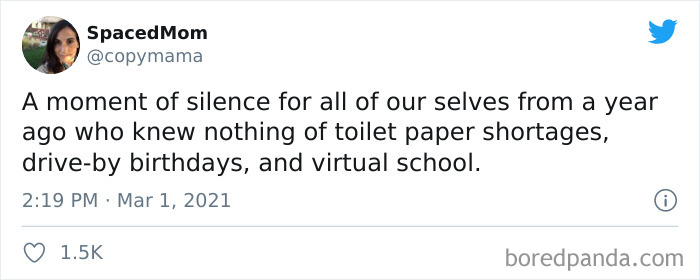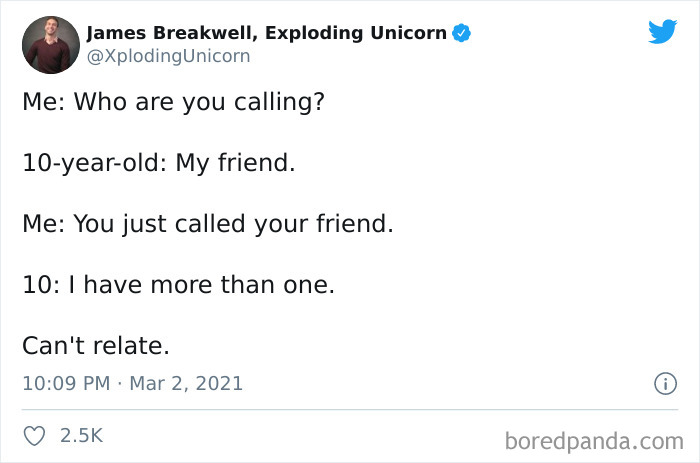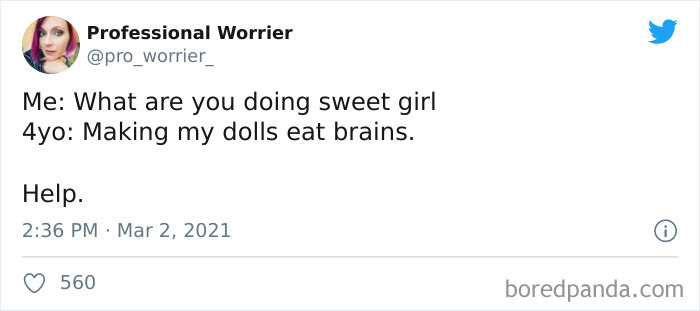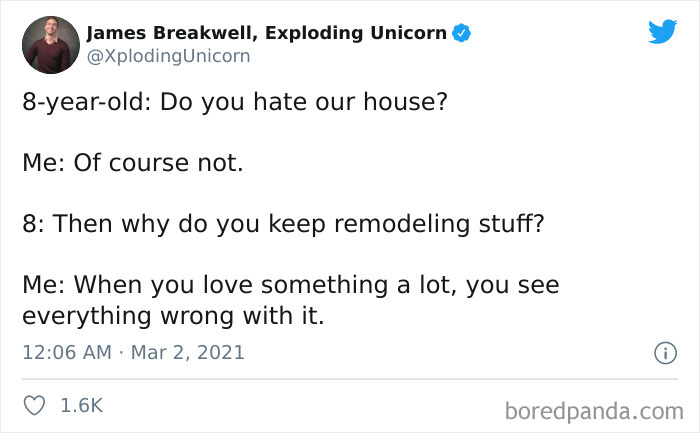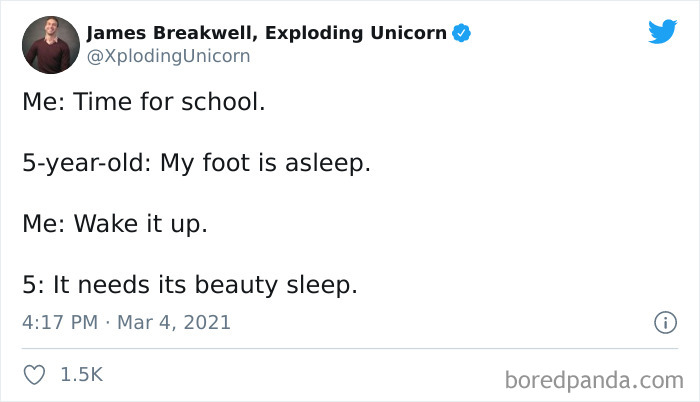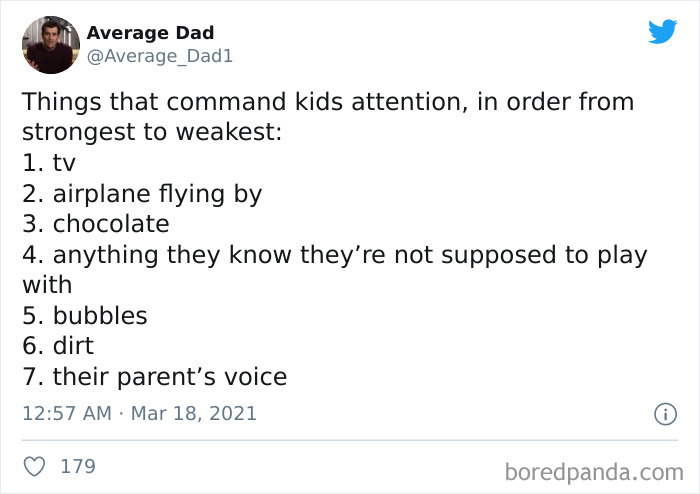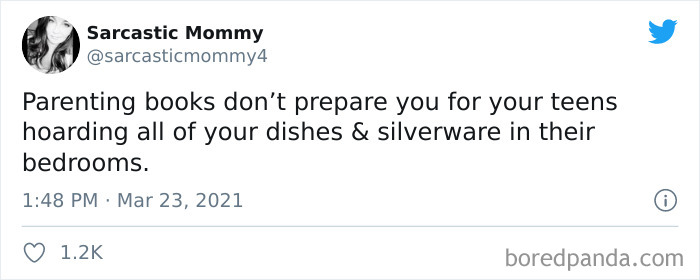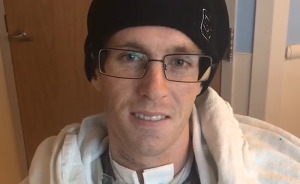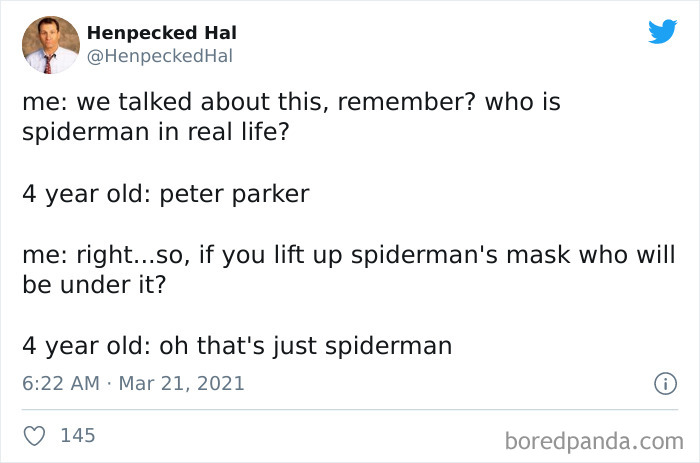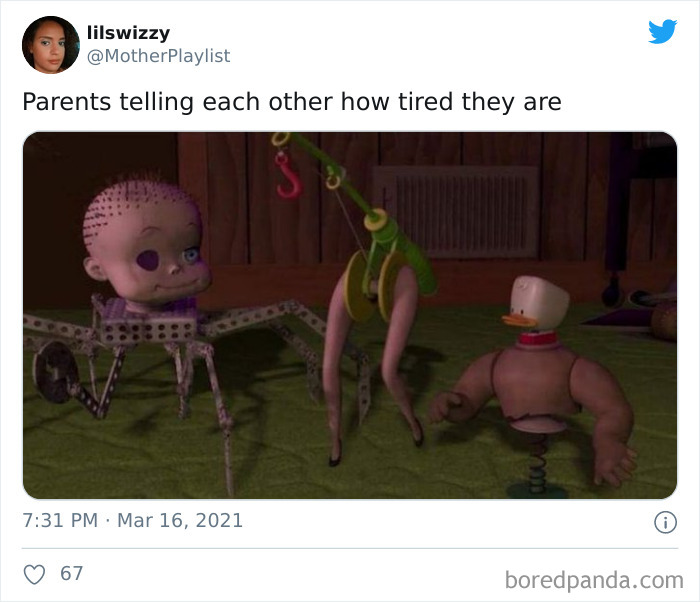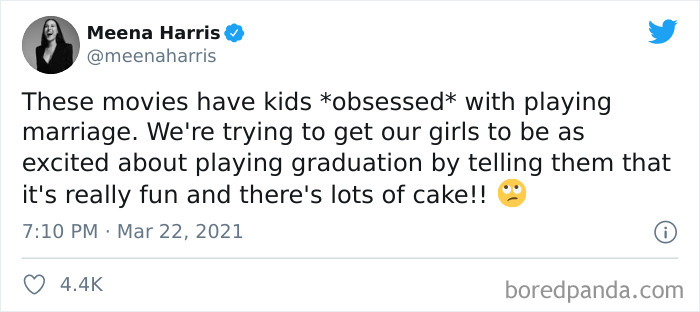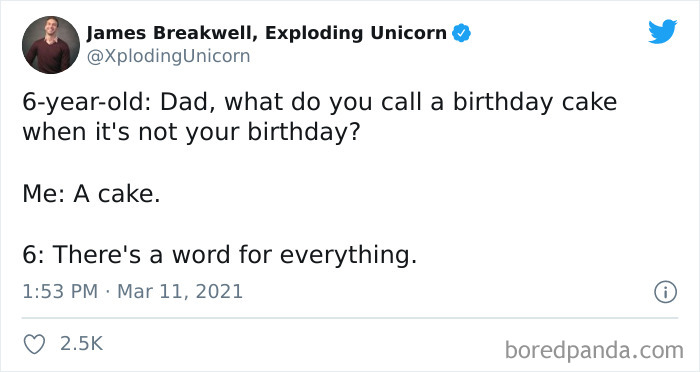A good parent is someone who strives to make decisions in the best interest of their child. But that doesn't mean moms and dads have to be perfect. Nobody is. Not even their children. Mistakes are bound to happen, the important part is to learn from them... and have a good chuckle!
Realizing the benefit of being able to laugh at ourselves, we at Bored Panda have dedicated an entire series to funny parents. Each month, we compile a list of their honest, humorous tweets, and let me tell you—March has been exceptionally generous. Continue scrolling to check out the entries and after you're done, fire up our February and January lists for more giggles.
This post may include affiliate links.
However, what if you do make a parenting mistake and can't stop thinking about it even after venting on Twitter? Well, Vicki Broadbent, a writer, director, broadcaster, and founder of the parenting blog Honest Mum, believes the fact that you are even worrying about being a good parent is testimony to the fact that you are a good parent.
"Please remember you're a human too and will have good and bad days. Be kind to yourself so you can be kind to others and that means forgiving yourself when you mess up," the author of The Working Mom: Your Guide to Surviving and Thriving at Work and at Home told Bored Panda.
I once gave a load of stuff to a charity shop and then went in with my little girl and she was like "look mummy we have those!" Nope. Not anymore kid.
According to the Honest Mum whose also on Instagram, you are a composite of your own life experiences and upbringing, those formative childhood years and beyond, and a lot of parenting can feel triggering. "Your child is left out at school for example, and it reminds you of being bullied." So question your reactions.
Speaking from her own experience, Vicki said therapy has helped her own parenting style hugely. She was able to work through issues, allowing herself to recognize if she's projecting or feeling triggered when it comes to her own parenting/children's behavior. And that allows her to change her responses.
"It has also helped me to be a more sympathetic, calmer parent," Broadbent said. "Children require unconditional love and direction. They thrive on boundaries and routine and they require honesty. You want your children to trust and respect you. They need to know where they stand so they can feel emotionally safe at all times."
"When you mess up, be honest, explain your behavior. For example, 'Sorry, I didn't mean to shout but I didn't sleep well last night and I had a stressful situation at work today.' And if you lost your temper due to your child misbehaving, take some deep breaths and explain in an age-appropriate way how what they are doing makes you feel. Focus on your own emotions so they can empathize with you and also see you as a human being, just like them."
Illustrate what you mean, Vicki advised, use examples to back up your feelings so your child can understand your position. 'Remember the time you cried when your brother wouldn't listen to your story and you kept telling it to him over and over again, and felt ignored and cried. Well, that's how I feel when you ignore me when I'm calling you for dinner'.
"Warn your child when they are behaving badly then choose an appropriate punishment: stopping tech time for a period or making them take a time-out. Giving them the opportunity to remedy their behavior is fair and allows them to feel they have a chance to do better."
Vicki Broadbent thinks you shouldn't label your kid as 'a bad child'. Instead, you can label their behaviour as bad, unkind, or even thoughtless. Also, have realistic expectations from your child too: toddlers and teens are constantly going through great developmental changes, physically and emotionally so acting up is natural.
"Often it's about having the patience and understanding to tolerate the tougher times, and also seeing the behaviour as a call for help: for love, time, space or all three sometimes," Broadbent said. "My eldest behaved stroppily over tech time recently and it was only when I stopped reacting to his behaviour and started responding more gently that he opened up and said he wasn't actually upset over gaming but something that happened at school (which we later tackled together). Look behind the behaviour. Yours and theirs and don't forget that parenting requires a lot of detective work!"
Laura Markham, who has earned her Ph.D. in Clinical Psychology from Columbia University and has worked as a parenting coach with thousands of parents, said you don't have to make up for not being a perfect parent. Perfect just gets in the way of love, she said. Try to remember that joy comes from appreciating the wonder in all those miraculous moments that are disguised as everyday life.
"The key is letting go of your need to be perfect and offering emotional generosity every chance you get, to everyone around you—including yourself," Markham wrote.
this child may have just created the cure to every disease that ever existed
Some of my fondest memories is of my mother and I going into the kitchen after everyone else left for the weekend (visitation) to make a "kitchen sink" salad and share it, along with hot tea and buttered saltines. It was a ritual for us - none of my siblings cared for salad.
My behaviour can be improved with gifts of chocolate, or can be made worse...
Note to parents: grind the onions up in a blender until liquid before adding to food. (P.S. this works for picky husbands, too)
Every chance you get! "Why did you do that?!" - "you remember the sharpie incident? Consider it Revenge. And I have YEARS more of your Shinanegans to use as justification." *rubs hands together and cackles manically*
i used to do something like this, my friends and i pretended to have a news show and we had all sorts of segments. weather, sports, word of the day, etc.
Let me guess, it was something that, if made for her, she would not touch.
My.niece used to 'kiss' by opening her mouth and latching on to your cheek and sucking for her life like she was going to get fed.... it was like an eel or something. So glad she grew out of that.
Lol my son does the same thing. Papa how much is nine thousand ten hundred plus nine thousand ten hundred? Ummm, 20,000? NO!!!!! I thought you were good at math!
I didn't know any of these words (living in the UK). At 10 y o I said 'bum' and got told off.
Lol I have the same struggle. Thankfully the 3 yo helps me with the answer
I KNOW !!! Parents should really stop not listening, it makes kids lose confidence! 😑( anyways, I can relate )
me and my 11-year-old sister had a mini argument about which came first, she said chicken, and I said egg. her reasoning being god created all things, mine being evolution. I have an idea on how to make our theories coexist. I might tell her that God created the first few animals, then created a few more things, and occasionally wasn't too happy with his creations so he occasionally deleted some of them or changed them. and that the egg came first because he decided to change one of the animal's eggs into one that would make a chicken. Do you guys think it would work?
And masks, and social distancing, and endless hand washing, and glaring at anyone who dares to sneeze, or cough, within 12 feet of us.
I put my hand on the car window when I was abt 6, and said it was “the racoon”. They half believed me :p
Listen to the wind blowwwwwwwww watch the sunnn rrrriiiiiiissseeeeeeeeee
The dun dun dun dun dun bit got multiple songs stuck in my head at once which I didn’t know was possible until now
Remember, it's OK even if you need to vent online—Vicki Broadbent of Honest Mum said the fact you are even worrying about being a good parent is testimony to the fact that you are a good parent
 Image credits: honestmum
Image credits: honestmum
Either all of James Breakwell’s kids are miniature Jerry Seinfelds or he’s making those conversations up.
making stuff up? on the internet? but...but...that's unheard of!
Load More Replies...Either all of James Breakwell’s kids are miniature Jerry Seinfelds or he’s making those conversations up.
making stuff up? on the internet? but...but...that's unheard of!
Load More Replies...
 Dark Mode
Dark Mode 

 No fees, cancel anytime
No fees, cancel anytime 


